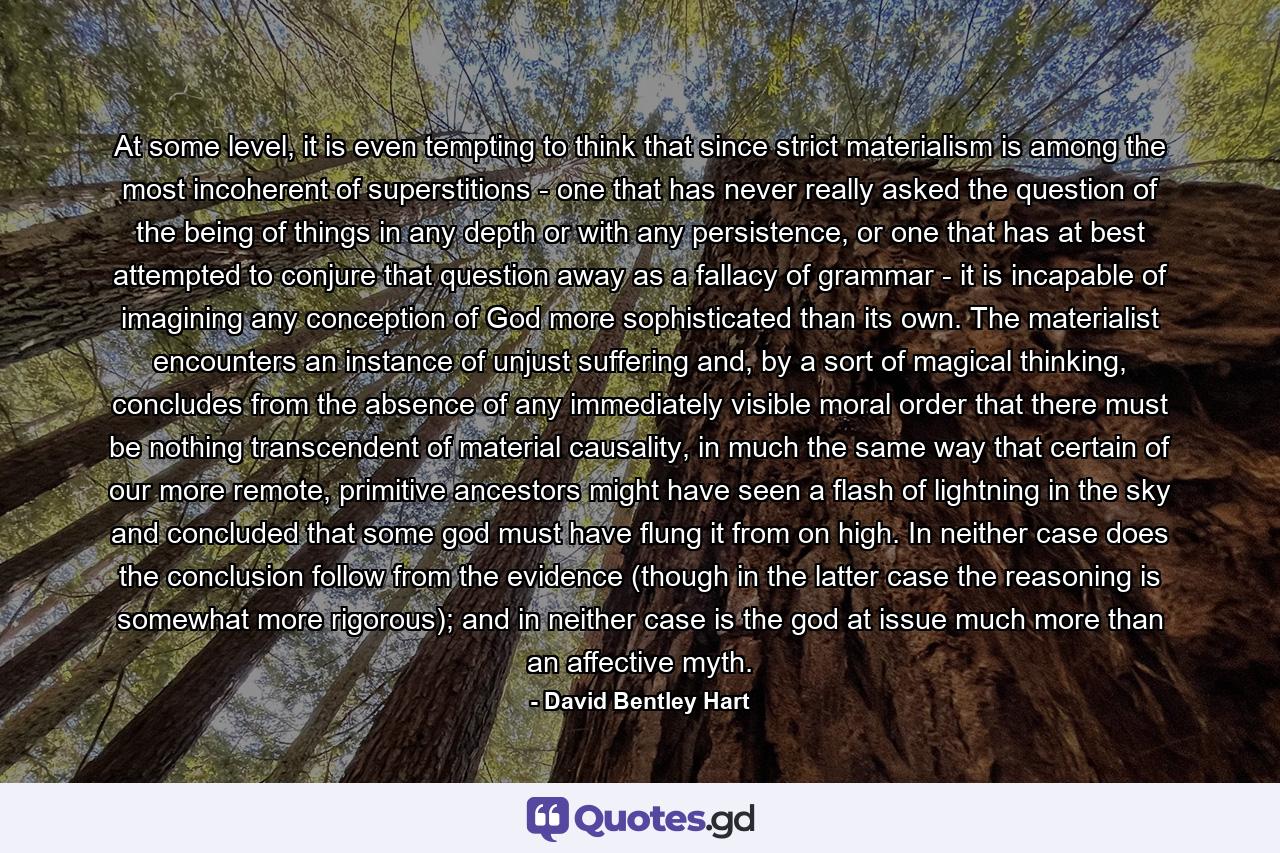At some level, it is even tempting to think that since strict materialism is among the most incoherent of superstitions – one that has never really asked the question of the being of things in any depth or with any persistence, or one that has at best attempted to conjure that question away as a fallacy of grammar – it is incapable of imagining any conception of God more sophisticated than its own. The materialist encounters an instance of unjust suffering and, by a sort of magical thinking, concludes from the absence of any immediately visible moral order that there must be nothing transcendent of material causality, in much the same way that certain of our more remote, primitive ancestors might have seen a flash of lightning in the sky and concluded that some god must have flung it from on high. In neither case does the conclusion follow from the evidence (though in the latter case the reasoning is somewhat more rigorous); and in neither case is the god at issue much more than an affective myth.
